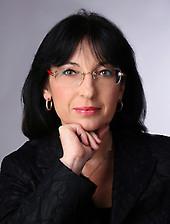Adobe Stock / svetazi
At the latest since the Corona pandemic, conspiracy theories have arrived in society and are present in public discourse. In a study on the topic of diversity of opinion in an open society, the Konrad Adenauer Foundation looked at conspiracy theories. In addition to the spread of conspiracy theories in society, the study focuses on the structure of conspiracy theories in people's minds. Do they follow a conspiracy? Do they construct their own world out of many conspiracies?
Some key findings of our study are:
- 8 percent of eligible voters believe that secret powers control the world and another 23 per cent suspect that this is probably true. Between 2020 and 2022, the share of people believing in conspiracy theories remained roughly stable. Recently, the share has risen again.
- During the Corona pandemic, there was a high visibility of conspiracy theories in the public. In the in-depth interviews, all the common elements of conspiracy theories and anti-vaccination/vaccine sceptics can be found. Above all, many interviewees are sceptical about the new vaccine. The pandemic is perceived as a phase of social polarisation in which vaccination refusers are sidelined. Many respondents are overwhelmed with the situation and the rapidly changing situations.
- No respondent fully followed a conspiracy theory (such as QAnon). Components from all kinds of conspiracy theories emerge and are put together to form a kind of patchwork conspiracy.
- A few interviewees are completely immersed in the world of conspiracies. They claim to have expanded their knowledge through research and thus feel superior to others. This immunises them against other opinions or facts.
- Conspiracy theories make people lonely. Respondents know that those around them do not appreciate or share their views and are more likely to fall silent or withdraw from social contact.
Read the entire study “It’s all been proven” – Results from representative and qualitative surveys on conspiracy theories in Germany here as PDF. Please note, to date the study is only available in German.



